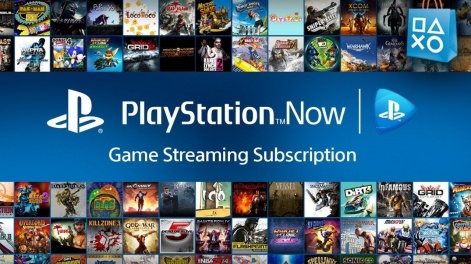The age of gaming subscription services has begun.
Though it’s been in the backdrop for a while, figuring out how the system will work and what companies will take the plunge, the idea of subscription has started to make its self-heard in the video game space.
Microsoft was one of the first big console manufacturers to go all-in with Xbox Game Pass, showcasing hundreds of games for a flat fee.
Now the likes of Sony have ramped up its PlayStation Now service before Google enters the scene with its all streaming service, Stadia. While over on mobile, Apple has launched Apple Arcade offering dozens of premium games for a monthly fee of $4.99.
We’re in uncharted territory, with a new service of some kind seemingly popping up every time you veer onto the web.
To gain some better knowledge of whether this shift is good for the games industry, we thought we better reach out to our ever-insightful line up of Indie Mavens to get an idea from their perspective.
So we asked them:
- With the rise of Apple Arcade, GameClub and more, do you think subscription services will be good for indie game developers?
- What impact do you believe this monetisation model will bring over the next 12 months?
At Triple Topping we moved away from premium mobile-first.
One game our studio released – Spitkiss – we did all of the right things with press and reviews but were completely drowned out despite Apple and Google features.
Our next game Welcome to Elk is a Steam title and will be way easier for a small company like ours to do PR and Marketing for.
However, Apple Arcade is interesting if the deals are as good as they are now, which does make the idea of creating a premium mobile game interesting for us again.
I ultimately think subscription services are going to be good for indie game developers.
They will push developers to make games that consider game design first before monetisation (at least in the case of mobile games).
I believe they will also empower game designers to take more risks and make games that are more experimental, as they can worry a bit less about the title and its success in the overall market.
In the short term, I think it all relies on how good the deal is.
Having secured money upfront would be a big plus. But how much does it take away from later possible sales, if you weren't on the service?
Does the subscription service further shrink the ‘outside’ market for premium games? Fewer people purchase premium games now but will even fewer after the subscription services really get underway.
We just released Pig Eat Ball to all major consoles where Game Pass and PSN subscriptions exist. We've already had some players say they'll simply wait to get it, until it shows up on one of those services. It seems very possible that subscription services will be the main way to make money on games in the future.

You'll need to convince the service owner to pay you and take your game.
At that point, we'll have just looped back around to the old guard of publishers in the 90s but with hopefully a better percentage payout to developers.
Honestly, I don’t know.
Not everyone will get on these subscriptions, so what happens to them?
I think short term it’s an exciting new model that offers a new way to get paid for premium content without having to worry about what types of games and hooks you need to consider to make it viable.
In a world that is getting increasingly hard for indies to make freemium work that sounds very appealing and if we’re honest do any indies want to have to consider freemium games?
It will always be preferable to make your genius creation without having to consider where to put IAP or advertisement hooks.
The problems I see are that not everyone will get on these subscriptions, so what happens to them? Apple doesn’t want games that are already released and have other parameters for what doesn’t fit.
In the long term, subscriptions devalue the idea of pay-per-item premium entertainment and centralises who can profit from game sales.
I'm worried about being separated from selling my games and getting a clear revenue percentage.
Netflix makes me less likely to buy movies and Spotify makes me less likely to buy albums. I actually spend more on movies and albums now than ever but all that money goes to two companies instead of being spread to different (sometimes indie) artists.
So, as an indie studio head, I'm worried about being separated from selling my games and getting a clear revenue percentage.
If I have to rely on corporate curators to greenlight and fund my projects, I'll be much more constrained in the kinds of games I can make - and that's assuming I get funding at all. But it also feels inexorable and inevitable in the current market.
The most recent subscription service launched was GameClub, which gives users access to over 100 iPhone classics from day one. Its main competitor is Apple Arcade and has been priced at $4.99 a month just the same.



























